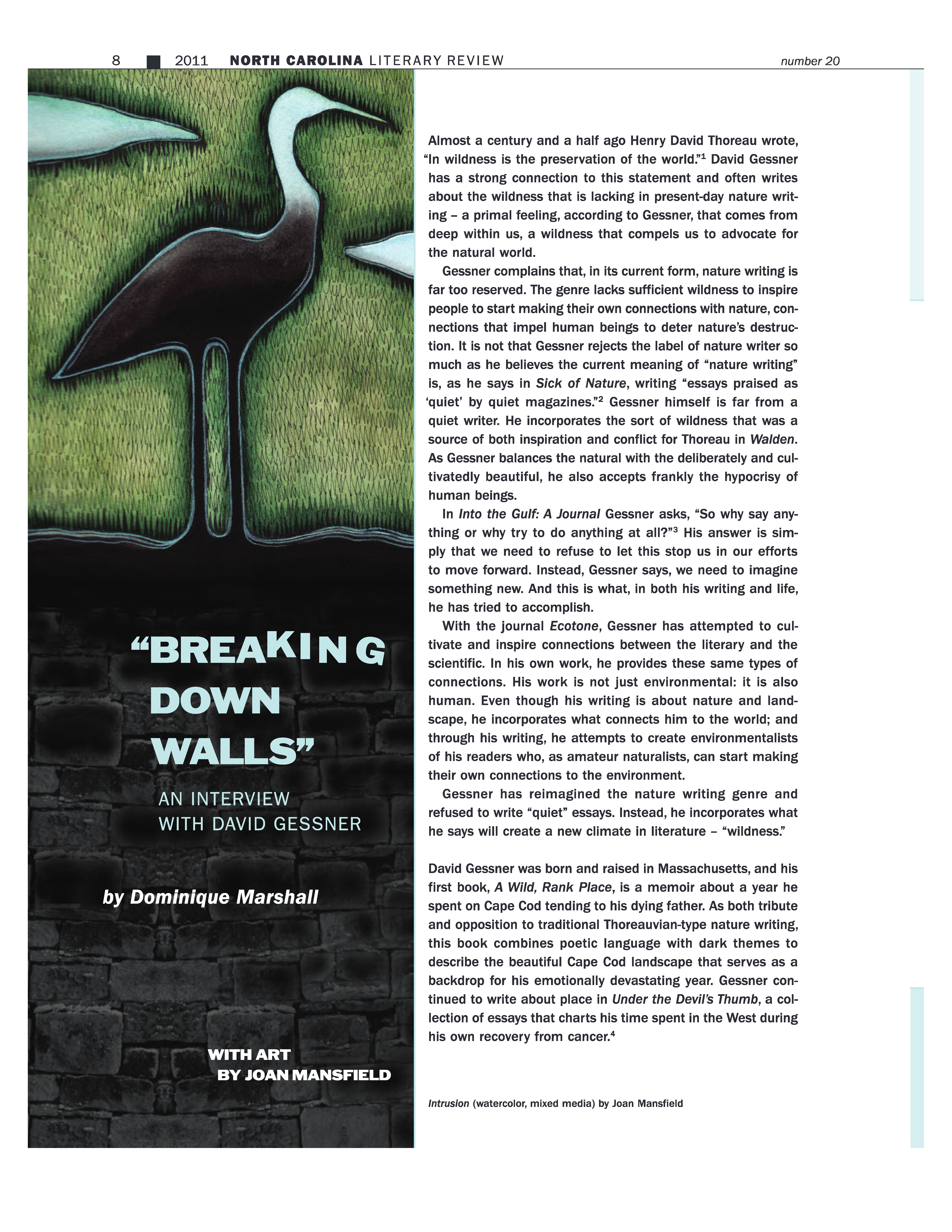Friday from the Archives: “breaking down walls”: An Interview with David Gessner
by Dominique Marshall from NCLR 20 (2011)
We’re revisiting some of our former student assistants for our current crowdfunding campaign, going on through October 15th, with our partner ECU Advancement. Our work preserving and promoting North Carolina’ rich literary culture would simply not be possible without the undergraduate and graduate students who help us every semester.
The list of tasks that students work on is enormous and, sometimes, a little tedious, like following up on author’s submissions to ensure everything is complete, or writing captions and marginalia for pieces. So the larger, more creative, uncommon projects become special, like this interview MFA student Dominique Marshall (now an English instructor in our community college system) conducted with UNCW Professor and award-winning author David Gessner for our 2011 issue featuring “North Carolina Environmental Writing.”
“Marshall: You founded a literary journal, Ecotone, in 2005 at UNC-Wilmington. According to the journal’s mission statement, Ecotone strives to be a connection between the literary and scientific. You’ve also talked before about how environmental and nature writing must change in order to be more beneficial. How is the journal accomplishing the connection and reaching a new audience through the reimagining of genre?
Gessner: I’ve always found so-called nature writing to be kind of stuffy and a little pompous. I particularly don’t like it when nature writers use the hushed voice of the sage. What we have tried to do with Ecotone is
break that wide open and show that there is no one way to write well about place. One example of this is the work of Jennifer Sinor who wrote about how being an Army brat affected her sense of place. While old school “place” writers, from Thoreau on, have maintained that the relationship with place is a monogamous one, that we all have our Walden Pond that we love, this changes when we are always moving, as Sinor was, and have to make sense of those movements. Another example would be the issue in which Camille Dungy and Sebastian Matthews collected the work of prominent African American poets writing specifically about place.
If you add it up, it equals an effort to break the idea of “place writing” out of the nature ghetto and into something much bigger. Ben George, the current editor of Ecotone, has taken this to a new level, publishing fiction, poetry, and nonfiction that consistently wins the top prizes. It’s been very exciting to see where the magazine is now headed.” (Ecotone has consistently been awarded top prizes in multiple literary press competitions.)
Read the entire essay on ProQuest or purchase a copy of the 2011 issue.
